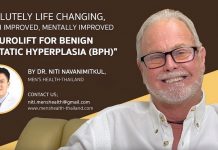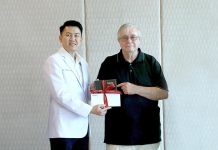Cancer “breakthroughs” are always hot news in the media. Hardly a week goes by without another treatment being claimed as the “cure” for cancer. For example, “A drug made from tree bark is being combined with radiation therapy to cure cancer, experts revealed yesterday. The ‘double whammy’ has proved 85 percent effective in laboratory trials. Last night the treatment was being hailed as a breakthrough.”
What this item does not tell you is, on how many subjects did they give the tree bark to, and in fact, was it tested on humans? I would need to know a lot more and see the “breakthrough” used for a significant period of time.
Hot on the heels of the tree bark, a trial of a Melbourne-developed drug shows four out of five patients had a positive result, with complete remission for one in five.
Melbourne-developed Venetoclax is one of a new generation of targeted drugs which attack specific cancer-causing biological factors like cell-structure mutations.
Actual patients were chosen for the trials, with one fighting a recurrence of chronic lymphocytic leukemia, a cancer of the blood and bone marrow, when he was chosen to take part in a trial in 2013.
He spoke on radio, saying “I think I was the eleventh person in the world to have it. It was amazing. It causes no side-effects. Nothing, absolutely nothing.”
Within a year his leukemia went into remission. However, it should be noted that leukemia is characterized by acute episodes and remission by itself.
Professor John Seymour, of the Peter MacCallum Cancer Centre, helped oversee the trial. He said the treatment worked in a very different way to traditional therapies. “Cells, when they are born, are destined to die and cancer cells and particularly leukemia cells delay that death by using a protein called BCL2 that stops the normal time of death. Venetoclax works by specifically blocking the action of that BCL2 and allows the cells to die in the way that they were destined to.”
Now here comes the nitty-gritty. In the trial nearly four out of five patients had a positive result, with complete remission for one in five patients. But on the other side of the ledger, some patients did have a negative result.
The developers of Venetoclax – David Huang and his team from the Walter and Eliza Hall Institute of Medical Research in Australia – were awarded the Eureka Prize for Innovation in Medical Research at this year’s ceremony.
It is further claimed that Venetoclax and targeted therapies are just one of a number of major breakthroughs in cancer research in recent years.
The area of research giving the most hope is immunotherapy.
Immunotherapy drugs work by harnessing the body’s own immune system to defeat cancer and a new dedicated immunotherapy lab at the just-opened Victorian Comprehensive Cancer Centre will focus on their development.
So far, they have been used most effectively in the treatment of melanoma, but the end result cannot be guaranteed. When the melanoma one patient had beaten a decade ago re-emerged in 2014 he was put on an immunotherapy drug, Ipilimumab (also known as Yervoy) that had only recently been approved for the Australian market.
Twelve months later, his melanomas were completely gone, and he has suffered virtually no side effects. “Truly amazing – the fact that it’s actually given me the position where I have not got cancer in my body is a great feeling,” he said.
However, where these drugs may work for some, for others the result may be doubtful. For that melanoma patient, he knows only too well that immunotherapy does not work for everyone. His wife developed melanoma about the same time as he did and she was put on another immunotherapy drug. The response was not what was hoped for and she was unable to tolerate the drug, and after two attempts it was decided that she would have to stop the treatment and the melanoma spread and she succumbed to the cancer.
So, be aware that “breakthroughs” are not necessarily heralding the end of all cancers, and even where the research results look hopeful, there is still a long way to go. And beware of snake oil salesmen.




